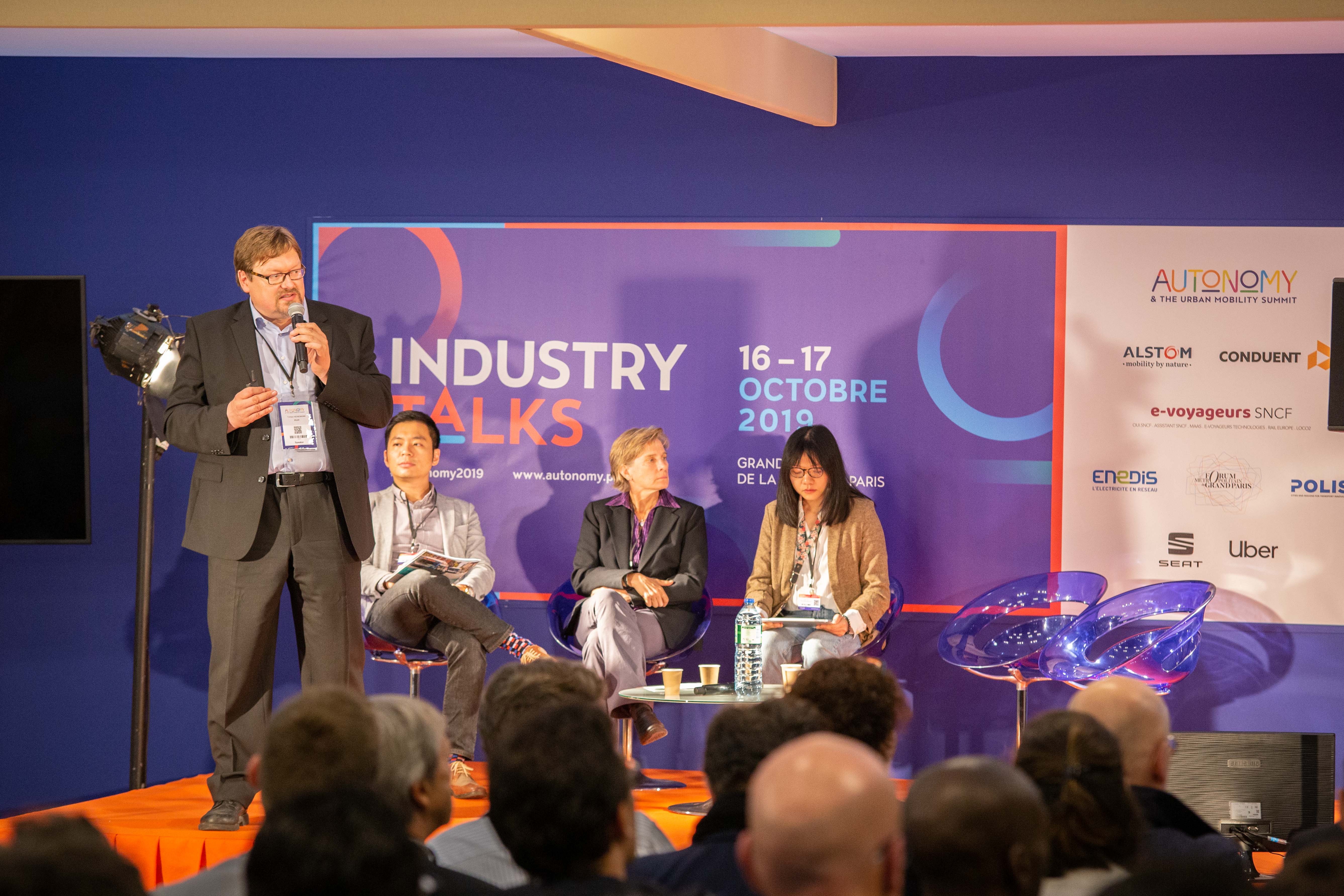By Beatrice Ch’ng, Sustainable Mobility Officer, ICLEI – Local Governments for Sustainability
With the increasing transport-related GHG emissions, pollutants and dependence on oil imports, electric mobility can contribute significantly to achieving climate-friendly mobility in cities. As technology and market for electric mobility become more mature, its adoption has accelerated in cities across the world.
ICLEI’s Sustainable Mobility team organized a session on “A tale of three cities: Transforming urban mobility with electric vehicles” at Autonomy 2019, with mayors and heads of transport from Europe, Asia and the United States sharing their experience in catalyzing electric mobility in their cities, reflecting similar experience and learnings although in different contexts. How should cities accelerate this revolution and make it favorable for the cities’ goals?
Aligning climate, energy and urban development plans. Electric mobility will help pave the way for a new culture of urban and mobility planning. Colorado, USA’s ambitious climate goals include reducing GHG emissions below 2005 levels by 30% by 2030 and 90% by 2050. In Boulder, 28% of GHG emissions come from ground transportation, motivating the city to develop the Zero-Emission Vehicles (ZEV) Standard for auto dealers. The latest Climate Plan is aligned with the Transportation Plan to provide high-quality public transport service with a combination of shared and electric travel options as well as increasing walking, biking, public transport and micro-mobility options.
Capitalizing on the renewable energy transition. Leipzig is one of the German pioneer cities on electric mobility. About 85% of Leipzig public transport is electric and the tram system is fully powered by renewable energy since 2017. Besides electrifying the public transportation system, there are currently 67 public charging stations, with 160 charging spots for individual electric car owners fully powered by renewable energy. This transition was made possible through close cooperation with energy companies. In the case of Foshan, China, the city works closely with the upstream and downstream hydrogen energy industry to provide guidelines and incentives for technical and cost breakthrough.
Close collaboration with different stakeholders. Chinese central government provides financial subsidy for cities to construct charging facilities and purchase new energy vehicles. Foshan city will achieve the goal of having 100% electric buses, with 10 hydrogen energy stations and 39 charging stations with 448 charging piles. In Leipzig, close dialogues are facilitated with private sectors to build trust as the city defines the legal framework.



